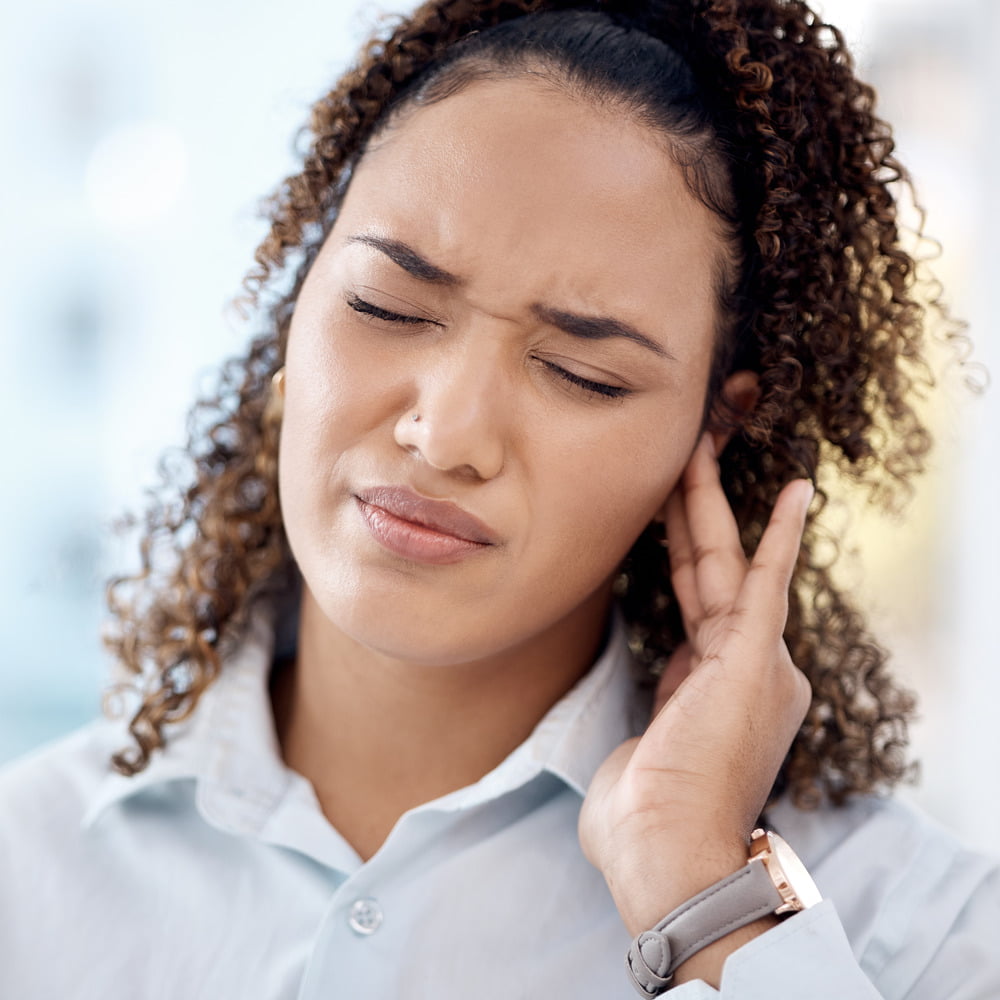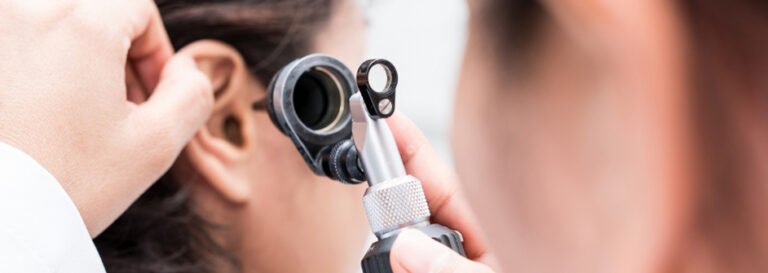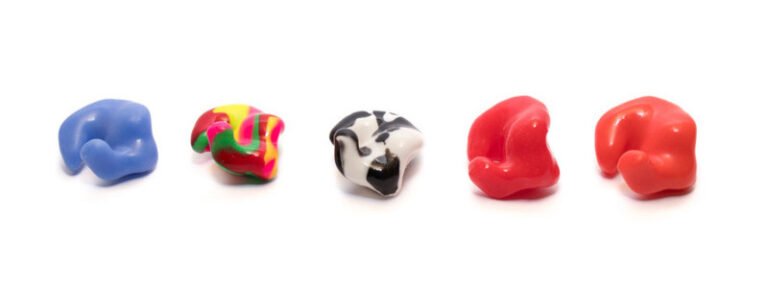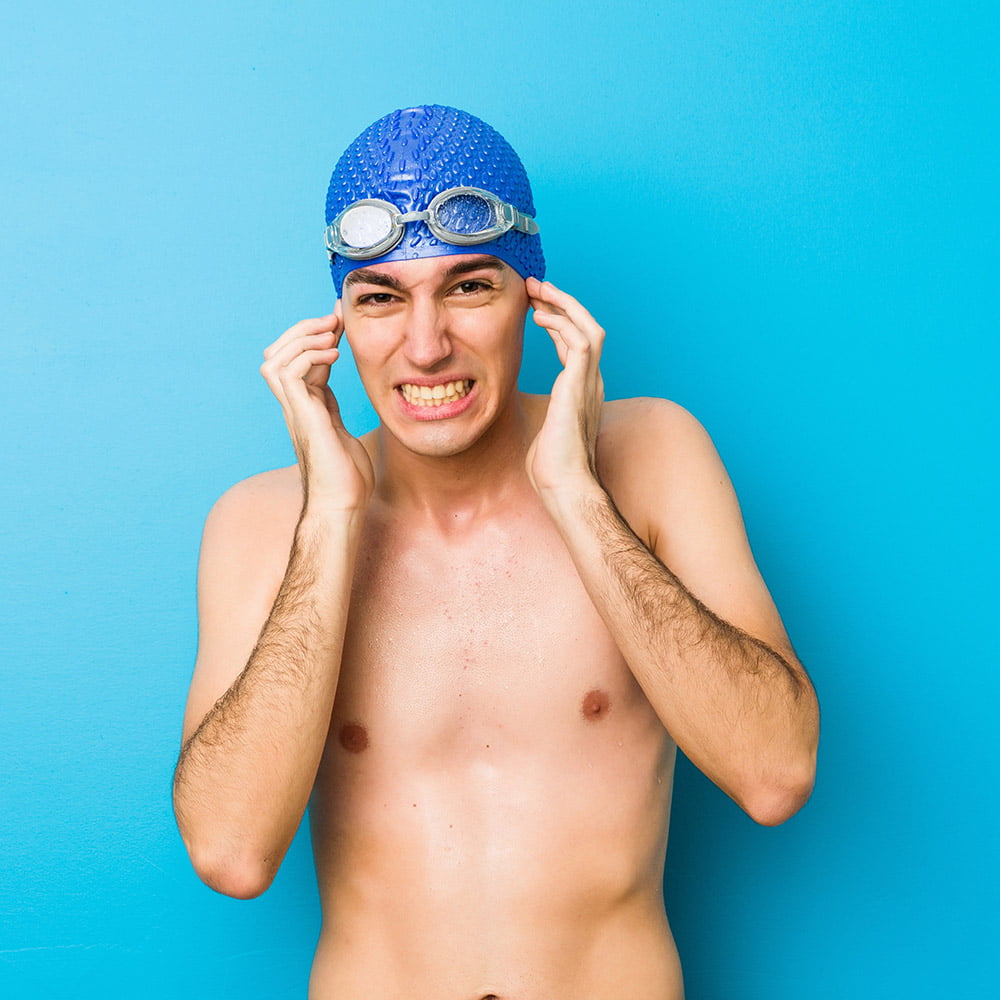Summer is a season filled with outdoor activities, swimming, and sun-soaked adventures. While it’s a time for fun and relaxation, it’s also important to be mindful of your ear health: external ear infections are easy to catch in summer. The combination of heat, humidity, and exposure to water can increase the risk of an ear infection and other ear-related issues. Additionally, events like concerts and festivals often involve loud environments that can put your hearing at risk.
Whether you’re a swimmer, a festivalgoer, or someone who simply enjoys the warm weather and the outdoors, it’s worth having some knowledge (and tools) to protect your ears. So read on to make sure your summer is ear problem-free!
In This Article:
‘Hot Weather Ear’: Why Does It Occur and Who Does It Affect?
Otitis externa, a condition which you may also have heard of as ‘hot weather ear’ or ‘swimmer’s ear’, is an infection which occurs in the external ear due to exposure to hot weather and humidity. Swimmer’s ear often happens during the summer months, when many of us are enjoying water activities. It is caused by moisture in the ear canal which, if not properly dried, becomes a breeding environment for bacteria.
However, you don’t necessarily have to be a swimmer to get swimmer’s ear as the condition is quite common amongst adults overall: approximately one in ten people will have it at least once in their lives. A lot of those affected don’t even go into the water: the infection can be caused by any moisture, sand or debris that gets into the ear canal and remains there. It can also happen after a bath or shower if too much moisture remains in the ear.
1) What Are the Symptoms of an Ear Infection?
Swimmer’s ear can have severely unpleasant symptoms. In around 1 in 3 people, those are so intense that it affects the impacted individuals’ day-to-day lives. The symptoms can include the following:
- Intense pain (especially upon touching or pulling on your earlobe)
- Itching
- Skin in the ear canal appearing red and swollen
- Skin flakes being shed from the ear
- Liquid discharge
- Impaired hearing

2) What Complications Can Occur from Ear Infections?
Although not very common, otitis externa complications can be very serious. Narrowing of the ear canal might occur, which is caused by thick, dry skin building up in the canal, thus blocking it and potentially causing impaired hearing. Another possible complication involves the eardrum becoming inflamed or perforated. This happens in cases where the infection spreads to the eardrum, causing pus to build up inside the inner ear. If this condition does not heal on its own, surgery might be required. Perhaps the most serious, but rare complication is one by the name of ‘necrotizing otitis externa’. It occurs when the infection spreads to the bone that surrounds the ear canal and without treatment, this condition can become fatal.
3) Preventing Ear Infections in Summer
Of course, there are certain measures that you can take to prevent swimmer’s ear from occurring while still enjoying your summer and all the fun activities it involves. Those include the following:
- Do your best not to let water or soap get into your ears while you shower or bathe; a good idea might be to wear a shower cap
- When swimming, wear a swimming hat that covers your ears; ear plugs are another option
- If you think the water might be polluted, do not swim in it
- After exiting the water, turn your head from side to side to help any leftover water drain from your ears
- Make sure to dry your ears as well as possible after swimming, showering, or bathing; use a hairdryer on a low setting and do not insert any items inside your ears (e.g., the corner of a towel)
Beyond Water: Other Summer Ear Health Risks
1) How Sand and Wind Can Affect Ear Health:
Summer often brings us to sandy beaches and windy spaces. These can pose unique risks to ear health. Sand can easily enter the ear canal and cause irritation. This can potentially lead to infections if not addressed properly. Tiny grains of sand can create a breeding ground for bacteria. This is especially true if moisture is present.
Strong winds, common in coastal and desert areas, drive sand and debris into the ear canal. This disrupts the ear’s natural cleaning process. The ear canal has a self-cleaning mechanism that foreign particles can hinder. Wind exposure can also lead to dryness in the ear canal. This exacerbates existing issues and makes the ear more susceptible to infections.
Wind exposure alone can cause discomfort, even without sand. The dryness and dust carried by the wind irritate the ear canal. This can potentially lead to inflammation and infection.
2) Preventive Measures
- Wearing Earplugs of Earmuffs: Invest in quality earplugs or earmuffs specifically designed for sandy and windy environments. These can create a barrier that prevents sand and debris from entering the ear canal.
- Using Headscarves or Hats with Ear Flaps: When spending time in areas with high wind or sand, wearing a headscarf or a hat with ear flaps can provide additional protection by shielding your ears from direct exposure.
3) Post-Exposure Care
- Gently Cleaning Ears: After being exposed to sand and wind, gently clean your ears using a damp cloth. Wipe the outer ear carefully without inserting the cloth into the ear canal, as this could push debris further inside.
- Avoid Inserting Objects: Never insert objects such as cotton swabs or fingers into your ear canal to remove sand or debris. This can cause more harm than good. Instead, use over-the-counter ear drops designed to help clean debris from the ear canal.
- Seeking Medical Advice: If you experience discomfort, irritation, or any signs of infection after exposure to sand and wind, seek medical advice promptly. Early intervention can prevent more serious complications.

Loud Activities and Noise Exposure
1) Risks Associated with Noisy Environments
For many of us, music festivals, concerts, and various outdoor events are the highlight of summer. While most of us love those activities, however, they often come with high levels of noise that can pose significant risks to hearing health. Loud noises can damage the delicate structures within the ear, leading to temporary or even permanent hearing loss.
At concerts and festivals, sound levels can easily exceed 100 decibels (dB), which is well above the safe exposure limit of 85 dB. Prolonged exposure to such high decibel levels can result in noise-induced hearing loss (NIHL). Even a single exposure to extremely loud sounds can cause immediate and irreversible damage to your hearing.
Repeated exposure to loud environments has a cumulative effect on hearing. Over time, the inner ear’s hair cells, which are responsible for transmitting sound signals to the brain, can become damaged and die. Unlike other cells in the body, these hair cells do not regenerate, making hearing loss permanent.

2) Tips for Protecting Hearing During Loud Events
- Using High-Fidelity Earplugs: High-fidelity earplugs are designed to reduce the volume of loud sounds without distorting the quality of the music or speech. They are an excellent choice for concertgoers and festival lovers, allowing you to enjoy the event while protecting your hearing.
- Positioning Yourself Away from Speakers: The closer you are to the sound source, the higher the volume. Position yourself at a reasonable distance from speakers and amplifiers to reduce your exposure to intense noise levels.
- Taking Regular Breaks: Give your ears a rest by taking regular breaks from the noisy environment. Step outside or find a quieter area to allow your ears to recover periodically throughout the event.
3) Post-Event Care
- Monitoring for Signs of Hearing Loss or Tinnitus: After attending a loud event, pay attention to any signs of hearing loss or tinnitus (ringing in the ears). Temporary hearing loss and tinnitus can occur after exposure to loud sounds, but if these symptoms persist, they may indicate more serious damage.
- Consulting an Audiologist: If you experience persistent hearing issues following exposure to loud noise, it is crucial to consult an audiologist. Early detection and intervention can help manage any potential hearing loss and prevent further damage.
Being proactive about ear protection will ensure you continue to enjoy your favourite activities without compromising your hearing.
Using Ear Protection
1) Overview of Protective Products
Protecting your ears during summer requires the right tools to prevent infections, irritation, and hearing damage. Several protective products are available to help you safeguard your ear health:
- Earplugs: Earplugs are a versatile tool that can protect your ears in various situations. They come in different types, such as waterproof earplugs for swimming and high-fidelity earplugs for noisy environments. Their primary function is to block out water, debris, and loud sounds, reducing the risk of infections and hearing damage.
- Swimming Caps: Swimming caps are designed to keep your ears dry while swimming. They create a seal over your ears, preventing water from entering the ear canal. This is particularly useful for preventing otitis externa (swimmer’s ear) and other water-related ear infections.
- Antibacterial Sprays: Antibacterial ear sprays help create a barrier in the ear canal, preventing bacteria from causing infections. These sprays are particularly useful after swimming or exposure to dirty or polluted water.
Choosing the right product for your specific needs is crucial to ensure maximum protection. Consider the activities you’ll be engaging in and the environments you’ll be exposed to when selecting ear protection products.

2) Different Types of Earplugs
- For Swimming: Waterproof earplugs are designed to keep water out of your ears. Ensure they fit snugly but comfortably in your ear canal. Insert them before entering the water and remove them carefully after swimming.
- For Noisy Environments: High-fidelity earplugs reduce the volume of loud sounds without distorting sound quality. Use them at concerts, festivals, or other noisy events.
- For General Protection: Foam or silicone earplugs are great for everyday use to block out noise and protect your ears from dust and debris. Make sure they are clean and dry before use.
There are also other types of ear protection available for specific activities such as motorsports, shooting, and even for sleep. These earplugs range from budget-friendly, ready-to-use options to custom-made ones designed to perfectly fit the shape of each individual’s ear. Whatever activity you’re looking to engage in, you’re sure to find a type of earplugs suitable for that purpose.
Common Questions About Heat and Ear Infections:
Can heat cause ear pain?
Yes, ‘heat ear infection’ can be a real issue, as hot weather can exacerbate conditions in the ear canal that lead to infection.
Can body heat cause ear pain?
Elevated body temperature and external heat can contribute to discomfort and infections in the ear.
Can the sauna cause ear infection?
The high humidity and heat in saunas can indeed promote bacterial growth in the ear canal, potentially leading to infection.
Can heat cause ear pressure?
Yes, changes in temperature can sometimes cause pressure imbalances in the ear, leading to discomfort or a sensation of fullness. This is especially common in hot and humid environments where the pressure inside the ear may differ from the surrounding air.
Can hot weather cause ear infections?
Yes, hot weather can contribute to ear infections, particularly in the outer ear canal. The heat and increased humidity can create a favourable environment for bacterial growth, especially if moisture is trapped in the ear canal.
Can heat exhaustion cause ear pain?
Heat exhaustion can lead to a range of symptoms, including ear pain. The increased body temperature and sweating may create conditions that irritate the ear canal and make it more susceptible to pain or discomfort.
Does sauna help ear infections?
No, using a sauna wouldn’t help your ear infection. The heat and humidity in saunas can actually make ear infections worse by promoting bacterial growth. If you have an ear infection, it’s best to avoid saunas until the infection clears.
Does humidity cause ear infections?
Yes, high humidity levels can increase the risk of ear infections, particularly in the outer ear canal. Moisture creates an ideal environment for bacteria to grow, which can lead to infections such as swimmer’s ear.
How to protect ears from wind in summer?
To protect your ears from the wind in summer, consider wearing earplugs or earmuffs whenever in windy environments. You can also wear a hat with ear flaps or a headscarf to shield your ears from direct wind exposure. This helps prevent irritation, dryness, and the risk of debris entering your ear canal.
Hear4U’s Ear Protection Products and Services
To explore a comprehensive range of ear protection solutions tailored to your needs, we encourage you to get in touch with us at Hear4U. Our team of experts can provide personalised recommendations and help you select the best products to protect your ears this summer.
Alternatively, if you prefer to browse specific products on your own, visit our online shop, where we offer a variety of hearing protection solutions, including ear sprays and a range of earplugs for various purposes, from ready-to-use ones to custom-made options.






